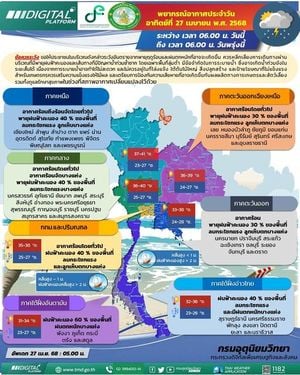On April 16, 2025, South Africa's Department of Employment and Labour took a significant step towards transforming the workforce landscape by gazetting new Black Economic Empowerment (BEE) sectoral targets for businesses. This move forms part of the newly published Employment Equity Regulations, 2025, which repeals previous laws and sets specific racial and gender-based numerical targets across 18 industries. The targets aim to reflect the country's racial and gender demographics, marking a crucial moment in the government’s ongoing efforts to promote equitable representation in the workplace.
The South African government has long been committed to Broad Based Black Economic Empowerment and Affirmative Action goals, yet many believe that progress has not been swift enough. Despite decades of BEE and Affirmative Action laws, top positions in many industries still do not adequately represent the black majority population. The Department of Employment and Labour has now made it clear that it expects businesses to comply with these new regulations.
According to the department, the targets are designed to ensure “equitable representation of suitably qualified people from designated groups at all occupational levels in the workforce.” Importantly, these targets apply only to ‘designated employers’—those with more than 50 employees. These employers are now required to prepare and implement an Employment Equity (EE) plan covering the period from September 1, 2025, to August 31, 2030.
These five-year targets exclude white males without disabilities and foreign nationals from the workforce profile. For instance, in the accommodation and food service sector, the targets mandate that 56.7% of top management must come from designated groups, with 38.1% of those being female. Furthermore, 78.3% of senior management, 84.7% of professional and middle-management positions, and 95.9% of skilled technical employees must also reflect individuals from designated groups, which include black people (African, coloured, and Indian), women, and people with disabilities.
Failure to meet these targets could result in companies being referred to the Labour Court and facing fines. However, the department has noted that designated employers will not incur penalties if they can demonstrate reasonable grounds for non-compliance. Such justifiable reasons may include insufficient recruitment opportunities, lack of qualified candidates, or adverse economic conditions impacting the business.
This week also saw four South African law firms, including Webber Wentzel, suing the government over its BEE law. Interestingly, Webber Wentzel is simultaneously adjusting its remuneration system to incentivize compliance with these new targets, despite its ongoing legal battle to overturn the law. A source close to the firm indicated that these changes are aimed at fostering a cultural shift within the organization to better meet BEE requirements.
As the Department of Employment and Labour officially gazetted these regulations, the response from the business community has been mixed. Some critics have voiced concerns that the targets are unrealistic, especially given the current stagnant economy. Thembi Chagonda, the joint CEO of Global Business Solutions and an employment equity commissioner, pointed out that while the targets may seem high, they are actually less than the requirements of the economically active population.
Chagonda emphasized that businesses have struggled to comply with employment equity legislation for over two decades, particularly at higher management levels. She noted that the government has previously provided companies with the opportunity to set their own targets, but many have failed to do so meaningfully. The department believes that it is now time for mandatory compliance.
During a recent discussion, Chagonda acknowledged that while the initial consultation process felt like a box-ticking exercise to some, the department has been in conversation about sectoral targets since 2017. She stated, “The department has consulted for some time... businesses have been aware that there are sectoral targets that are coming up.” Nevertheless, she recognized that challenges remain, particularly in sectors facing skills shortages.
Chagonda also highlighted that certain industries, like manufacturing, may face greater difficulties in meeting these targets. The automotive sector, in particular, is struggling to maintain profitability, which could hinder its ability to comply with the new regulations. Despite these challenges, she encouraged businesses to embrace the opportunity to promote diversity and inclusion within their workforce.
The new regulations not only set ambitious targets but also outline a system for monitoring and enforcement. The Department of Employment and Labour has developed an automated process to track compliance, which is intended to minimize human error in the evaluation of businesses' adherence to the targets. However, challenges could arise when inspectors assess justifiable grounds for non-compliance, potentially complicating the verification process.
As South African businesses brace for the implications of these new regulations, the conversation surrounding BEE and employment equity continues to evolve. The government insists that these targets are non-negotiable, while critics argue that they may be unattainable in the current economic climate. The coming years will reveal whether these regulations will indeed transform the workforce or if they will be seen as an overreach by the government.
In summary, the introduction of these new BEE sectoral targets represents a pivotal moment for South African businesses. With a clear mandate for transformation, companies must now navigate the complexities of compliance while addressing the underlying challenges that have hindered progress in achieving a more equitable workforce.




